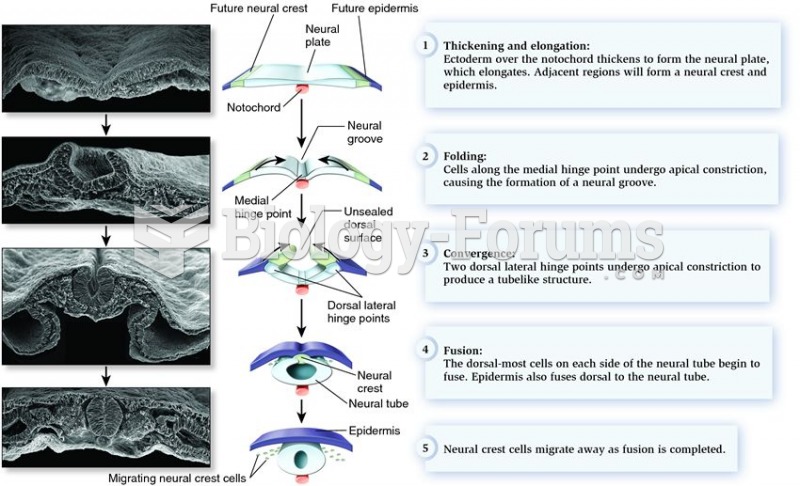|
|
|
Cutaneous mucormycosis is a rare fungal infection that has been fatal in at least 29% of cases, and in as many as 83% of cases, depending on the patient's health prior to infection. It has occurred often after natural disasters such as tornados, and early treatment is essential.
In the United States, congenital cytomegalovirus causes one child to become disabled almost every hour. CMV is the leading preventable viral cause of development disability in newborns. These disabilities include hearing or vision loss, and cerebral palsy.
The most destructive flu epidemic of all times in recorded history occurred in 1918, with approximately 20 million deaths worldwide.
Hippocrates noted that blood separates into four differently colored liquids when removed from the body and examined: a pure red liquid mixed with white liquid material with a yellow-colored froth at the top and a black substance that settles underneath; he named these the four humors (for blood, phlegm, yellow bile, and black bile).
People who have myopia, or nearsightedness, are not able to see objects at a distance but only up close. It occurs when the cornea is either curved too steeply, the eye is too long, or both. This condition is progressive and worsens with time. More than 100 million people in the United States are nearsighted, but only 20% of those are born with the condition. Diet, eye exercise, drug therapy, and corrective lenses can all help manage nearsightedness.
 The proportion of men and women with elevated blood pressure or taking hypertension medication incre
The proportion of men and women with elevated blood pressure or taking hypertension medication incre
 Lilly Martin Spencer’s Young Husband: First Marketing (1854). Note that passers-by are amused at thi
Lilly Martin Spencer’s Young Husband: First Marketing (1854). Note that passers-by are amused at thi
 The family of a soldier in the 31st Philadelphia Infantry camps near Washington, DC. Although both a
The family of a soldier in the 31st Philadelphia Infantry camps near Washington, DC. Although both a




